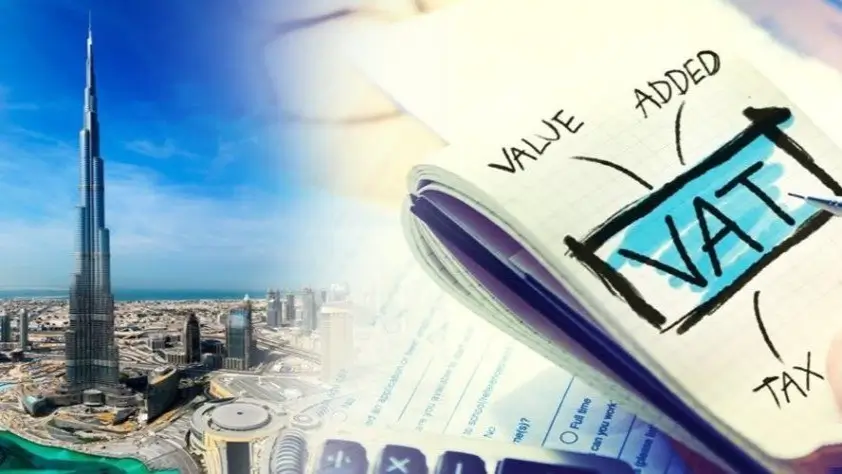To diversify its economy away from reliance on oil revenues, the United Arab
Emirates (UAE) introduced Value Added Tax (VAT) on January 1, 2018. VAT
implementation in the UAE, guided by Federal Decree-Law No. 8 of 2017, continues
to significantly impact all Emirates' businesses, consumers, and economic
practices, including Dubai and Abu Dhabi.
In this article we will detail the Basics of UAE VAT Registration, Return filing
deadlines, and Record keeping compliance
What is VAT?
Value Added Tax (VAT) in the United Arab Emirates is a form of indirect tax imposed on the consumption of goods and services at the standard rate of 5%.
VAT Registration
- Mandatory Registration: For businesses with taxable supplies and imports/expenditures above AED 375,000 in previous 12 months or is anticipated to exceed in next 30 days
- Voluntary Registration: If taxable supplies and imports/expenditures exceed AED 187,500 in previous 12 months or is anticipated to exceed in next 30 days
VAT Rates and Categories in the UAE
UAE VAT has following categories
Standard-Rated Supplies (5%) : The standard VAT rate in the UAE is 5%, which applies to most goods and services supplied within the UAE. This includes:
- Retail sales of goods
- Professional services
- Commercial property rentals
- Food and beverages
- Utility services
- Electronic services
- Imported goods
Zero-Rated Supplies (0%) : Zero-rated supplies are technically taxable at 0% VAT. Businesses making zero-rated supplies can still reclaim the input VAT they've paid on their purchases. The following are the main categories of 0 rated supplies
- Exports of goods and services to outside the GCC
- International transportation, and related supplies
- Supplies of certain sea, air and land means of transportation (such as aircrafts and ships)
- Certain investment grade precious metals (e.g. gold, silver, of 99% purity)
- Newly constructed residential properties, that are supplied for the first time within three years of their construction
- Supply of certain education services, and supply of relevant goods and services
- Supply of certain healthcare services, and supply of relevant goods and services
Exempt Supplies : Exempt supplies do not have VAT charged on them, but unlike zero-rated supplies, businesses cannot reclaim input VAT related to these supplies. The following are exempt from VAT in the UAE:
- Certain financial services that are compensated through implicit margins or spreads (rather than explicit fees)
- Residential buildings (sale or lease), except for those that are zero-rated
- Bare land (without any completed or partially completed buildings)
- Local passenger transport services
Deemed supplies : Although not traditionally defined as supplies, businesses must charge VAT on these transactions. Examples include
- The sale of business assets without consideration
- The transfer of business assets between UAE and other GCC Implementing States, and goods used for non-business purposes on which input tax is claimed
Out-of-scope supplies : These supplies fall outside the scope of UAE VAT law as defined by the FTA.
VAT Return Filing
VAT registered businesses must file VAT returns regularly through the EMARATAX portal. The filing frequency depends on the annual turnover:
- Monthly Filing : For businesses with annual turnover > AED 150 million
- Quarterly Filing : For businesses with annual turnover < AED 150 million
VAT returns must be filed within 28 days from the end of the tax period. The VAT return document (VAT 201) tracks various VAT related data, including:
- Standard-rated supplies
- Zero-rated supplies
- Exempt supplies
- Imports subject to reverse charge
- Adjustments to previous returns
VAT Payment (Remittance to the Government)
This net amount (Output VAT less Imput VAT) is payable to the Federal Tax Authority (FTA) through the EmaraTax portal within 28 days after the end of each tax period (monthly or quarterly). Failure to pay on time can lead to financial penalties.
Record-Keeping Requirements
Businesses registered for VAT in the UAE are required to keep comprehensive records of all financial transactions. As per regulations, the following must be maintained:
- All tax invoices, tax credit notes, and related documents (issued and received)
- Records of all supplies and imports of goods and services
- Details of goods and services used for non-business purposes
- Purchases for which input VAT was not claimed
- Records of all exports
- Documentation of any amendments to accounts or tax invoices
Penalties for VAT Non Compliance in UAE
The UAE imposes strict penalties for VAT non-compliance, covering a wide range of violations from late registration to incorrect filings and improper record-keeping.
Conclusion
The UAE’s VAT regime is straightforward but strict: a flat 5 % applies to most
goods and services, with carefully defined zero-rated and exempt categories.
Businesses crossing the AED 375,000 threshold (or any non-resident making
taxable supplies) must register, issue compliant tax invoices, file monthly or
quarterly VAT 201 returns within 28 days, and keep records for at least five
years. Input-tax credits, reverse-charge rules, and timely refund claims can all
optimise cash flow, but steep penalties for late registration, filing, or
payment make robust processes and accurate ERP configuration essential.

